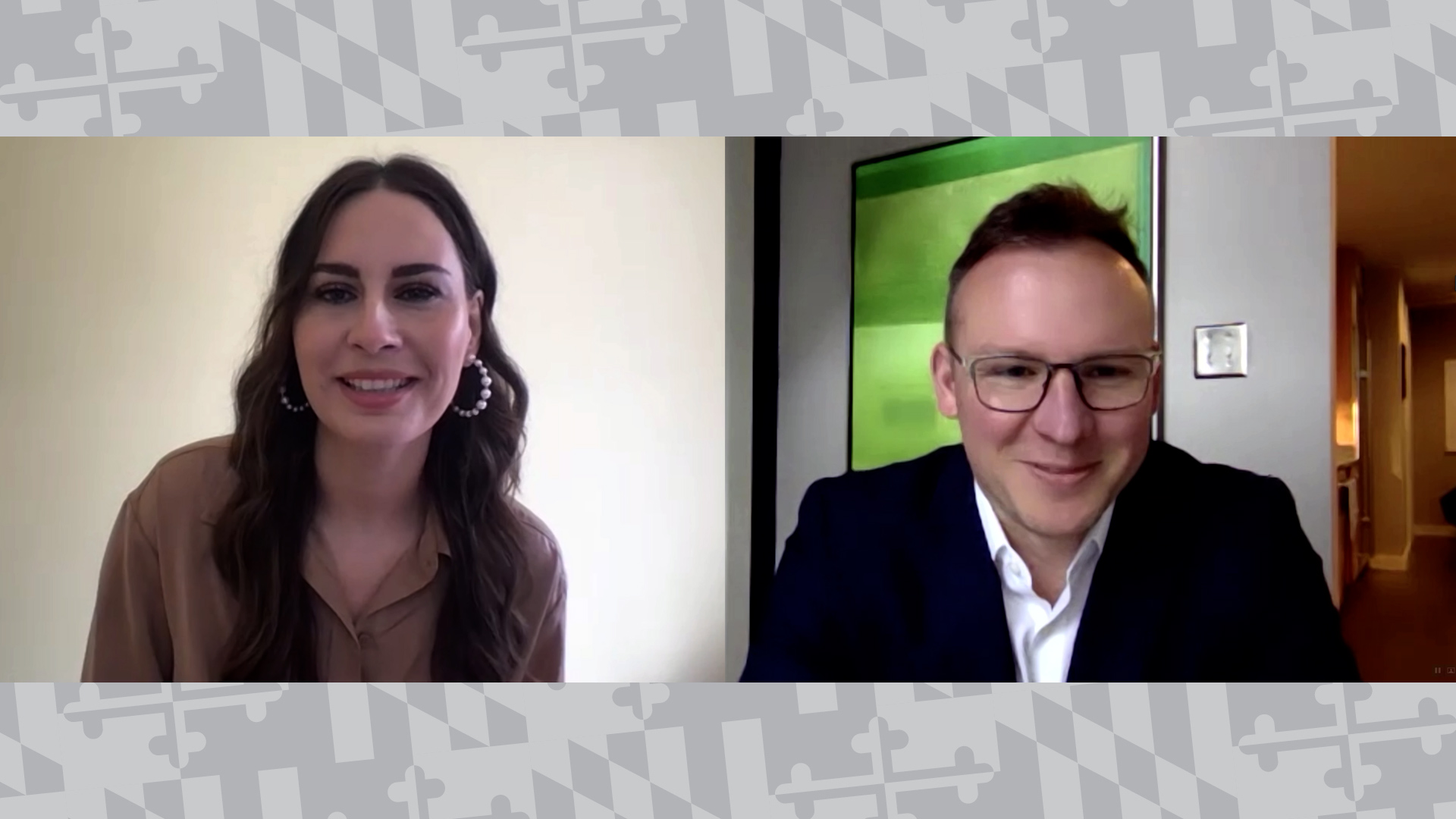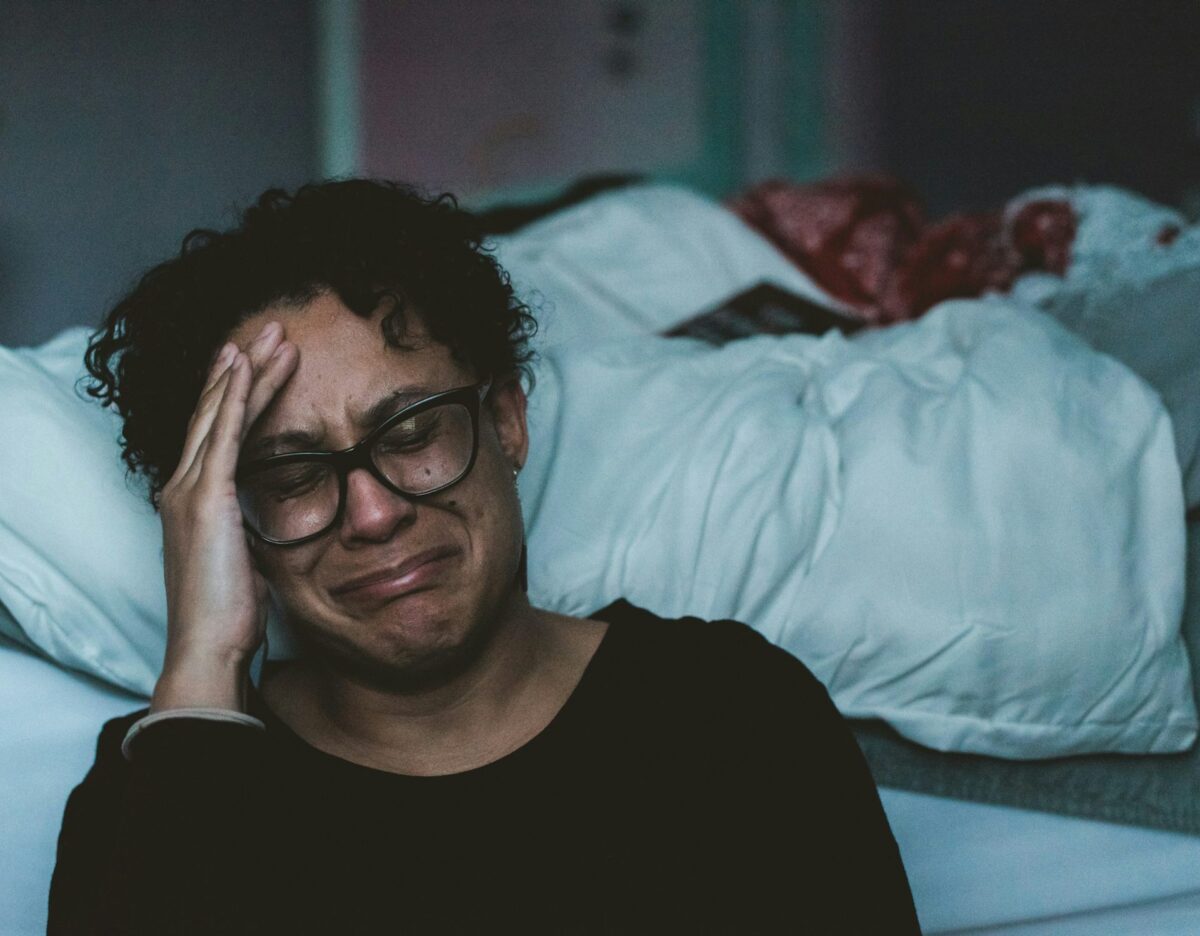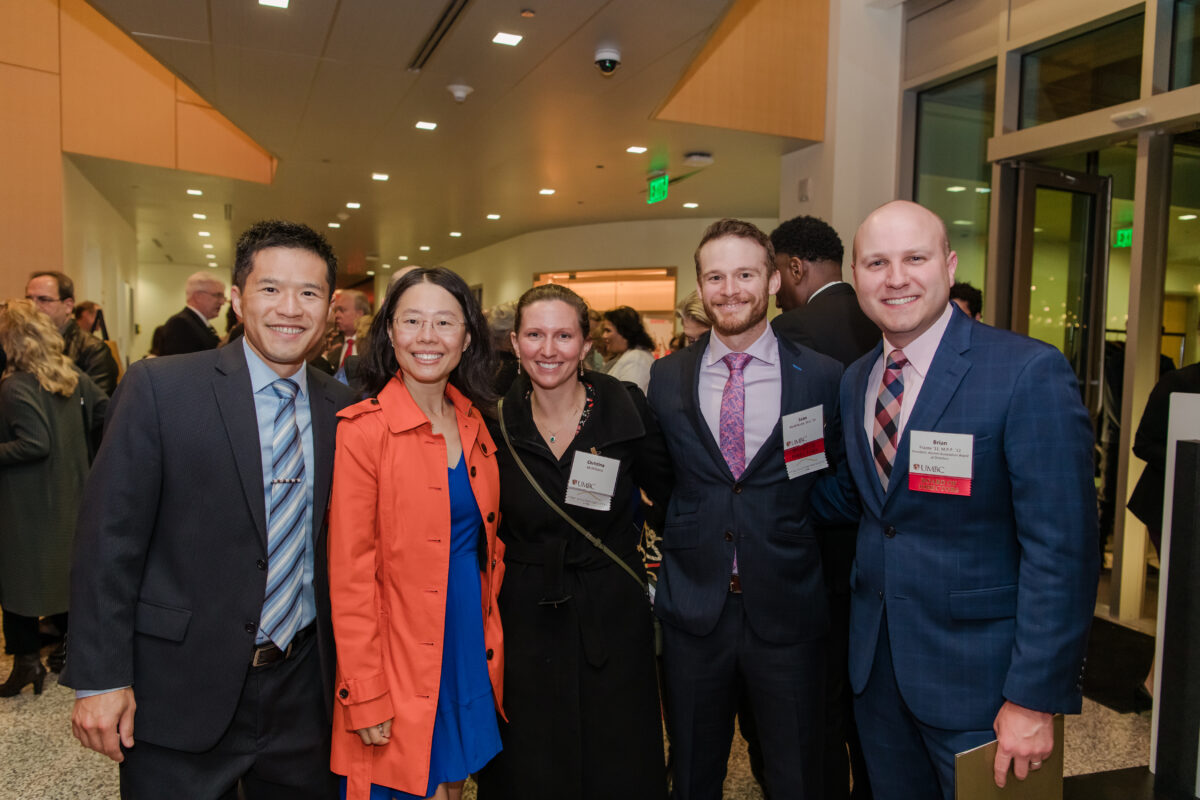Since 2009, as part of its Alumni Awards celebration, the UMBC Alumni Association has named one “Rising Star” recipient each year who exemplifies early career and professional achievement. In the coming weeks, we will spend some time with awardees from the past decade to see where they are now—and how they’ve grown in their fields while maintaining ties to UMBC. In this installment, UMBC Rising Stars Galina Madjaroff Reitz ’08, psychology, M.A. ’11, aging studies, Ph.D. ’18, human centered computing, and Sondheim Scholar Aaron Merki ’05, political science, discuss their mutual goal to uplift the dignity of elderly, cognitively impaired, and low-income individuals. Reitz is using tech to assist older folks and Merki is creating accessible communities through a different path—law and philanthropy.
Using tech the ‘right way’
Growing up in an intergenerational household helped focus her research with assistive devices, says Reitz, who received UMBC’s Rising Star award in 2016. Although during her childhood, she says, her family functioned without a lot of technology. “It was just stories,” Reitz clarifies. “It was a lot of talking to my grandparents, hearing their perspective on life, and getting a lot of advice, solicited or unsolicited,” she laughs, “but in retrospect, I’m actually kind of glad that we didn’t have so much tech around us. I think that really gave space for reflection and to kind of connect on a different level. But now that we are so consumed by it and it’s all around us, I think it has to be incorporated into our lives the right way.”
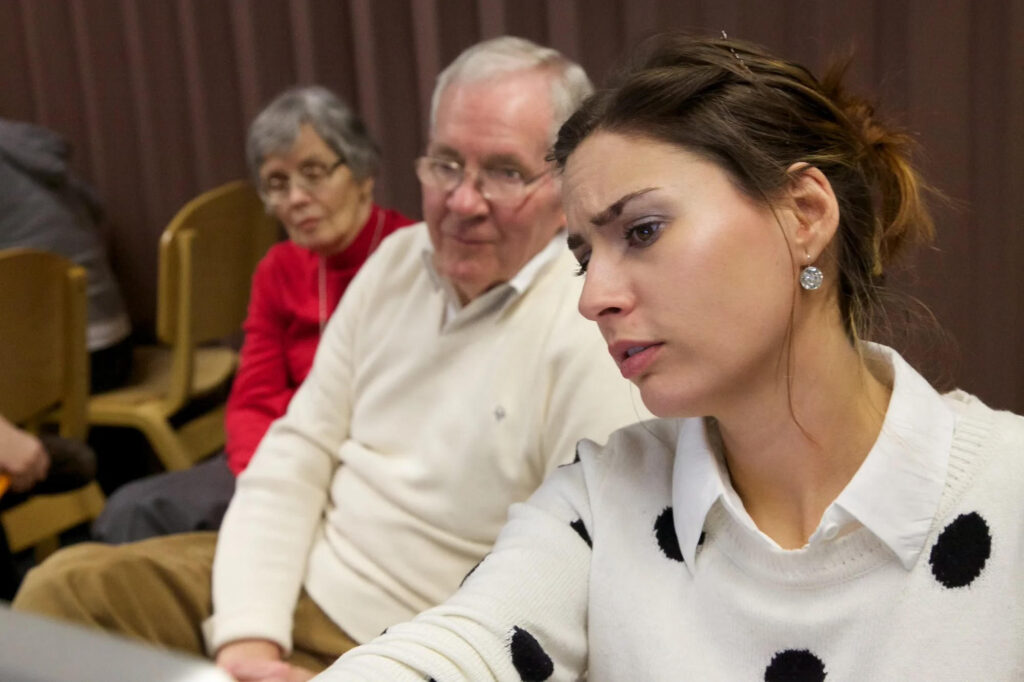
Now, after teaching at UMBC for 12 years, Reitz is now the faculty program director of the University of Maryland’s College of Information Studies and also an affiliate faculty at the Trace Center, which develops technology with the end goal of increasing the accessibility of information and communication technologies for people with disabilities.
Finding intuitive tools
Reitz also consults for Google and Amazon on their Echo and Alexa products to make the tech more helpful for older, cognitively impaired adults. But she didn’t come up with this idea on her own. About six years ago, in a conversation with a research participant whose wife had dementia, Reitz asked him about what technologies he already used. When he mentioned Amazon Alexa, Reitz was immediately interested. It had so much potential—it was an intuitive tool already built for consumers and at a moderately affordable price point, two things that often inhibit the accessibility of assistive technology.
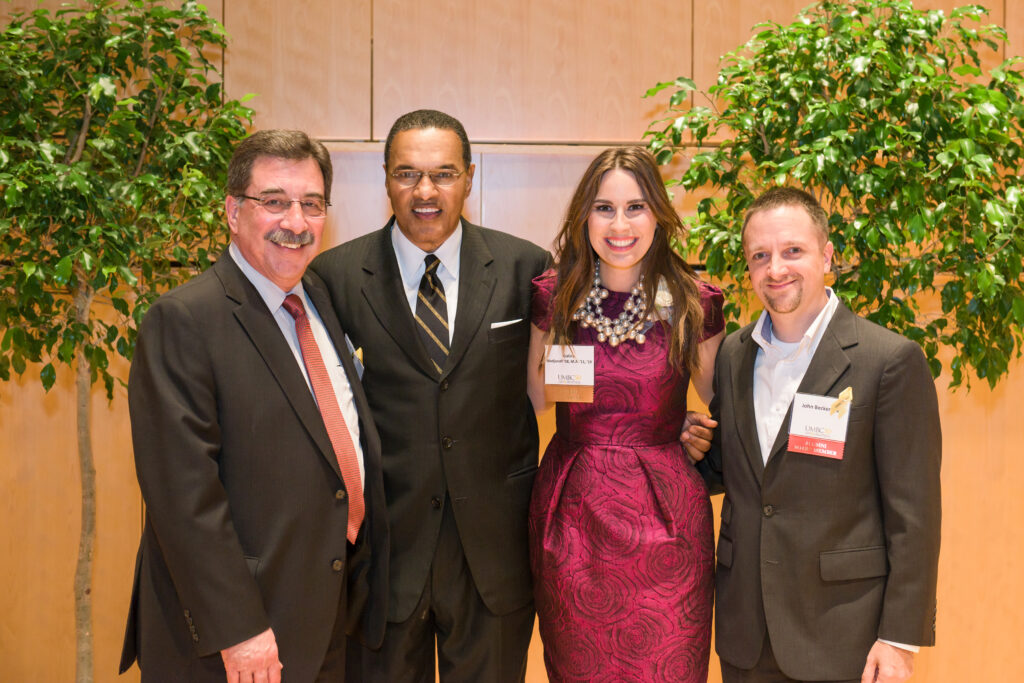
“For a long time we were developing tech that was, I think, infantilizing, and we didn’t understand the needs of older adults,” says Reitz, who explains that what older adults wanted was the devices they already used to better assist them. “So we’ve been really focused on building this ecosystem of tech that can support somebody—so they can stay in their home as long as possible, feel like themselves and continue to focus on their personhood versus just disease management.”
Long-lasting mentorship

Merki, who was a Sondheim Public Affairs Scholar at UMBC, tries to carry the values of the program’s namesake and his mentor—the late Walter Sondheim—into his own work in creating accessible communities. Merki was just 17 when he first met Sondheim, but the 93-year-old civic leader made a lifelong impact on him. “Everything about him as a leader went contrary to what you might envision,” says Merki. “He was such a humble, gentle man, and everybody trusted him, which enabled him to get so much done.”
“We only provide grants to direct service providers—no policy, no research, no higher education, just direct services in the field of combating poverty,” says Merki.
Now, as managing director of programs and grants at The Weinberg Foundation—one of the largest grant makers in the older adults and aging space in the United States—Merki oversees approximately $130 million a year in grant distributions from the foundation, all focused on meeting the basic human needs of people experiencing poverty.
Staying connected
Like Reitz, Merki sees the need to ground himself in the experiences of the populations he’s working with. “It’s easy to become disconnected when you work in philanthropy,” says Merki, who was a Rising Star recipient in 2010. “It’s easy to get an inflated sense of your own importance and capacity for impact. And it’s important to remember that it’s not you who’s doing the real work on the ground, that you are simply a partner and a supporter for those nonprofit leaders, for those people who are out there meeting the needs of older adults and children and families every day.”
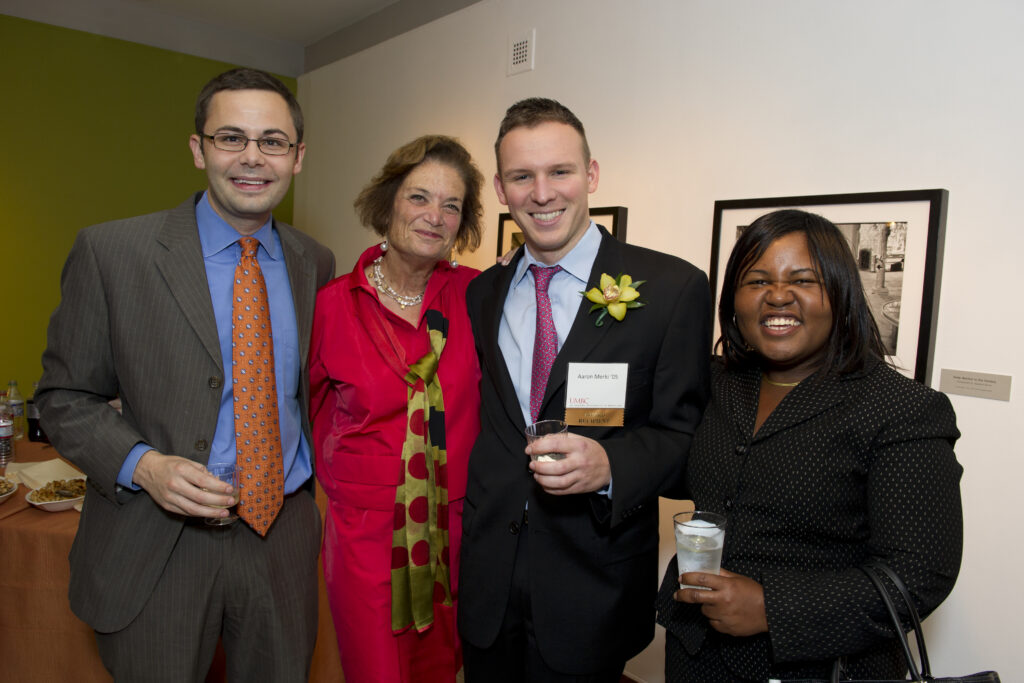
To combat distancing himself, Merki says he and his team go out in the field a lot. “We are traveling to the communities that we work in. We are meeting people and making sure that the projects that we’re funding are top notch. You really have to make it a priority to be with the people who your grants serve.”
Twenty years after meeting Sondheim, Merki says, “He is still a guiding force in my life, and I try to live up to his example. Walter’s life of service was focused on bettering the lives of other people, largely disadvantaged and vulnerable populations throughout Baltimore—he was just so fundamentally concerned with everyone else and the community at large, more than himself.”
Read more about other Retrievers rising together and stay tuned for more information about UMBC’s 32nd annual Alumni Awards in October.
Tags: Aging Studies, Alumni Awards, Erickson School, human centered computer, Political Science, Psychology, Rising Star, Sondheim, Spring 2021

